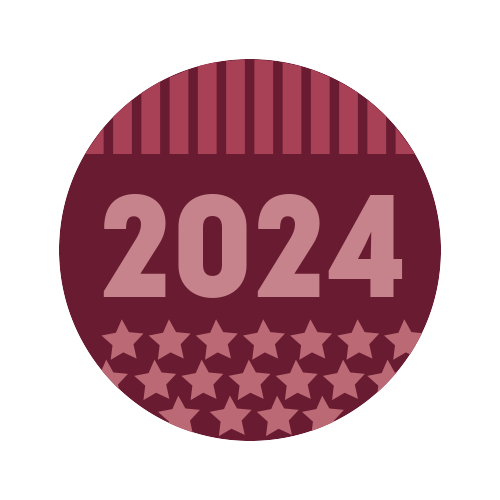2024 Summer Reading Program
Strong Voices: Empowering Student Citizenship
The Bill of Obligations: The Ten Habits of Good Citizens
by Richard Haass
This year’s summer reading theme is “Strong Voices: Empowering Student Citizenship.”
The program is informed by a central text, The Bill of Obligations, by Richard Haass.
We hope that this very straightforward and clear discussion of basic expectations for American citizenship will help demystify the democratic process, assist you in conducting constructive conversations, and encourage you to enact positive change in your communities.
This year’s summer reading books were funded by Grubbs-Happer Book Endowment, which is administered by the History program.
Contact Information
Chrissie Bumgardner
Co-Director, First Year Experience
bumgardner@meredith.edu
Lisa Brown
Co-Director, First Year Experience
lmbrown@meredith.edu
Listen
Amended Podcast (Episodes 1&2) (Content Warning: Episode 2 includes discussions of sexual and racial violence, which may be distressing for some listeners. Listener discretion is advised.
Summer Reading Questions
Opening Question:
Why do you think Meredith College selected this book for this year’s summer reading program?
Question for Part One:
The United States Constitution was ratified over 230 years ago and has been amended (changed) only 27 times during that period. Does it currently fulfill its goal of creating “a more perfect union?” What changes would you like to see in this governing document?
Question for Obligation I: Be Informed
Where do you currently get your news?
Do you feel it is trustworthy?
How do you determine if a source is reliable?
Questions for Obligation II: Get Involved
Besides voting, how can you take an active part in your democracy as a student? What are some ways you can get involved?
The Bill of Obligations suggests that parents, corporate leaders, and churches can all be sources of influence. In addition, sports figures, actors, and musicians are also capable of impacting their fans. Who has influenced, or inspired, you to be a good citizen, and how did they make an impact on you?
Question for Obligation III: Stay Open to Compromise
How would you define compromise in the context of the political environment? As a college student, what situations might require compromise? When is it right to compromise, and when to stand firm?
Questions for Obligation IV: Remain Civil
The author states that “disagreements are inevitable in a democracy.” When you are communicating with someone who has a different opinion or perspective than you do, what are some strategies you can use to have an effective dialogue?
How has social media contributed to incivility?
Question for Obligation V: Reject Violence
Why is it important to reject violence as a means of reaching political gains in a democracy? What are some examples of “peaceful channels” through which members of a democracy can work to reach their goals?
Question for Obligation V: Reject Violence
Why is it important to reject violence as a means of reaching political gains in a democracy? What are some examples of “peaceful channels” through which members of a democracy can work to reach their goals?
Question for Obligation VI: Value Norms
How are norms different from laws? What are some examples of norms that govern the behavior of our government leaders? What are some examples of norms that have eroded in recent years?
Question for Obligation VII: Promote the Common Good
What comprises the “common good” for a democratic society? For our College community? What are some principles that you think are foundational to building a welcoming, inclusive, and engaging community on our campus?
Question for Obligation VIII: Respect Government Service
What are some of the benefits the author believes would come from starting some sort of voluntary national service program?
If the United States were to establish a voluntary national service program, what do you think the incentives would have to be for people to join it? Haass proposes reduced or free tuition for college, or forgiveness of student loans. Would incentives like these be enough to convince Americans to participate?
Question for Obligation IX: Support the Teaching of Civics
Meredith College does not require courses typically thought of as civics classes (they can be taken as part of General Education). Should Meredith students be required to take “civics” classes? Why or why not?
Question for Obligation X: Put Country First
Haass argues that part of putting country first is demonstrating “loyal opposition.” Why is “loyal opposition” integral to sustaining our democracy? Can you think of moments in your own life when you witnessed or exhibited “loyal opposition”?
Summer Reading Programming
Voter Registration and Information Fairs
- August 21 – 5-7 p.m. (at the Clubs and Organizations Fair)
- August 28 – 10-11 a.m., Cate Center Lobby
- September 17 from 12-1 p.m., Cate Center Lobby (National Voter Registration Day)
Presentations, Discussions, and Panels
- Heather White, Author and Speaker, “Green Civics: Democracy is not a Spectator Sport” – September 10, Jones Auditorium, 7 p.m.
- Fair Elections – September 11, 7-8 p.m., Kresge Auditorium (co-sponsored by the Carter Center)
- Meredith Alumna Mitchell Brown, Professor of Political Science, Auburn University, “U.S. Elections and Our Mutual Obligations” – Monday, Constitution Day, September 16, Kresge, 10-10:50 a.m.
- Dawn Blagrove, Attorney and Executive Director of Emancipate NC, “Flex Your Citizenship Muscle: Creating a Physically Fit Democracy” – September 19, Jones Auditorium, 7 p.m.
- The Importance of Judicial Elections – a panel with women judges in Wake County. October 15, Kresge, 5-6:30 p.m.
- Feel Good/Do Good: How do we make the world a better place?
October 4, 10 a.m. – noon, 2nd Floor, Cate Center (Students can drop in or stay the whole time.) Discussion of MLK’s leadership of the Civil Rights movement, his use of civil disobedience and nonviolent resistance, and how we can plan for the MLK Week of Service, Reflection, and Action, to be held the week of January 20-24, 2025.
Civic Engagement: Change at a Local Level with the MC Elections Board
Students are encouraged to run for Meredith College Officer Positions and VOTE in the MC Elections!
Freshmen Elections season starts Aug. 26
Info Sessions on how to run for office:
- 8/27 Tuesday, 7 p.m. after First Freshman Class Meeting in Jones Chapel
- 8/28 Wednesday, 10 a.m. in 214 Harris
- 8/29 Thursday, 4 p.m. in Kresge
First-Year Class Available Positions and Candidate Checklist
During polling on Sept 16 and 17, there will be a Meet & Greet event in the Cate Alcove 10 a.m.-4 p.m.. Candidates will be available to talk about their platform, and all students are encouraged to meet them and talk with the Elections Board about joining the Board or running in the campus-wide elections in February for the 2025-26 school year.
Campus-Wide Elections season starts in January with Info Week 1/13-1/17
Specific dates for Info Sessions have not been determined but will be publicized. There will be a Meet & Greet event for these elections as well, in Cate Alcove on Feb. 10 and 11.
Exhibits & Activities
Cultivating Community on Campus: Meredith Student Activism
Archives exhibit (virtual and physical), September, Main floor of the library and Archives website. This exhibit will explore how Meredith students have taken the initiative over the years to take ownership of and cultivate our campus community in response to national and international events.
Strong Voices: Creating Positive Change
Library book display, August – September, main floor of the library. This display will feature books on political activism and community building in the United States.
VALIDNation
An interactive work by Stacey Kirby, Friday, November 1, 10 a.m.-2 p.m. in the Art Department, in connection with the The Bill of Obligations by Richard Haass.
English Department Writing Contest 2024: Strong Voices
Meredith students are invited to craft an essay (argumentative or expository) or a creative piece (personal essay, poetry, fiction) that reflects this year’s Summer Reading Program theme: “Strong Voices: Empowering Student Citizenship.” Submission Deadline: Friday, October 4
Contest Guidelines

Voting in 2024 FAQs
To register to vote in North Carolina, you must be a U.S. citizen, live in the county in which you are registered, and have lived there for 30 days prior to Election Day. You must be 18 years old on or before Election Day.
You may register or re-register with your Meredith College address and vote in Wake County.
- If you have an N.C. driver’s license, you can use the online voter registration form: ncdot.gov/dmv/offices-services/online/Pages/voter-registration-application.aspx
- If you do not have a license or state ID card, you may complete a PDF form and return it to the county or state board of elections:
- The registration deadline is October 11, 2024
- Within two or three weeks, you will receive your voter registration card. It is not necessary to present this when you vote.
Yes, you may register or re-register during the Early Voting period in North Carolina. The period is from October 17-November 2. You must go in person to an early voting site and bring two forms of ID (e.g., driver’s license, utility bill, etc.). Here is where you can find early voting sites in North Carolina: vt.ncsbe.gov/EVSite/
Most states conduct their voting processes through the Secretary of State’s office in that state. You should go to that state’s (e.g., South Carolina) website for the Secretary of State and search for voting processes.
In North Carolina, you can check your voter registration status on the N.C. Board of Elections website: vt.ncsbe.gov/RegLkup/
Here you can also get other information, such as a sample ballot.
If you are registered in another state, please consult the Secretary of State’s website for the state you are registered.
- In person on November 5—you must vote in the voting location listed on your voter registration form. You cannot vote in another precinct.
- In person early voting—you can go to any early voting site in the county of your registration (https://vt.ncsbe.gov/EVSite/) and you will be given a ballot for your voting precinct.
- Absentee voting (vote by mail)—you may request an absentee ballot for where you are registered: https://votebymail.ncsbe.gov/app/home or
- Absentee ballots will be available in early September but must be returned to the board of elections (by USPS, UPS, Fed Ex) on or before November 5. There are no exceptions.
- You can track the absentee ballot process (from request through counting the ballot) at northcarolina.ballottrax.net/voter/
- You return the ballot in a sealed envelope that has been witnessed (someone over the age of 18 or a notary public).
- If you make a mistake (e.g., don’t have a witness signature), you may “cure” or correct the ballot, if it is before November 5.
North Carolina law mandates that you must have a photo ID to vote. You may use an N.C. Driver’s license or state ID card. The Meredith College student ID also qualifies.
In North Carolina, it is easy to get a sample ballot for your voting location. Go to: vt.ncsbe.gov/RegLkup/.
Once you type in your address, you will find a sample ballot with all the offices you are voting for.
For more information about voting in North Carolina, go to the North Carolina Board of Elections voting site: ncsbe.gov/voting
Tips for Constructive Communication
- Listen to understand
- Be aware of your own biases and assumptions
- Speak from your own unique experience
- Use “I” statements
- Talk about ideas, not people
- Words matter – be careful how you use them
"American democracy will work and reform will prove possible only if obligations join rights at center stage."
Richard Haass
The Bill of Obligations


